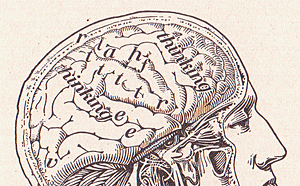 You may have received a recent email that started something like this:
You may have received a recent email that started something like this:
We have been informed by one of our email service providers, Epsilon, that your email address was exposed by an unauthorized entry into that provider’s computer system.
Did you rush immediately to Facebook or Twitter and ask “Who the heck is Epsilon?” I hope so because that would be super meta-ironic.
What you just discovered was what I hope will someday be known as Jim’s First Law of Personal Data Privacy, which states: “The people that know the most about you are the people you know the least about.“
The thing is, people have been trying to figure you out for a long time — long before you got your first email address or bought your first Michael Graves toaster at Target online. Many of the companies doing marketing services have roots that go back to before most of you reading this were born.
The difference is that in the old days they had to painstakingly amass their dossier on you one psychographically informative tidbit at a time. It might have taken a decade or more, but eventually by combining data from a bunch of the places where you did business they could more or less figure you out. Having accomplished that feat of data hoarding and analysis, they might make you 5% more likely to open a piece of direct mail, or discover that people that vote for third-party candidates might also respond to Hummer ads — and these companies would get paid handsomely for that information.
These databases were the crown jewels. If FASB accounting rules were rational, these information stores would appear on the books the way GM lists plant equipment. And they were big data before people were using the term “big data.” These folks were prefixing with peta- while the rest of us were still getting our heads around tera.
So I can only imagine the reaction in the boardrooms of those traditional firms when Facebook and Google built their Psychographic Marketing Honeypots and disguised them as a social network and a search engine. “All that data we’ve worked so hard to source! Merde! People just sit there all day giving it to them!”
And the best part? Need a new field to feed your new and better algorithm? Don’t spend months trying to source it from the U.S. Census or a credit card company or, even worse, merge with a frequent flyer program or a phone book to get it. It’s way easier than that. Just add a field to the user profile page and they’ll fill it out for you!
I wonder when it occurred to Mark Zuckerberg that he was like a casino operator and was building two companies. The part full of bad carpet and distractions that you think you’re doing business with and the part you can’t see behind the scenes that does, well, other stuff. Do you think it was part of his plan from the beginning, or was it sort of a mid-stage epiphany? Never mind, don’t tell me, I’m waiting for “The Social Network” to be free on Netflix. And I don’t want any spoilers in the comments, please.
The world has changed though, hasn’t it? We have entered the Matrix, but it’s not our body heat they want. They want the preference model encoded in our amygdala and a list of all the people that might influence that model tomorrow.
At some level, the relationship between Facebook and one of their advertisers isn’t all that different from any other marketing services firm and a company like General Motors. But the way we participate in generating our own profile while we think we’re doing something else is fascinating.
I think most people think their bargain with Facebook is like the one they had with broadcast television. I sit here a few hours a day sidestepping drudgery and you feed me ads. But as you know (or know now), that’s not it at all. And it’s definitely not just for those ads being served on the site.
The bargain we make collectively with “the web” might be Faustian if it were in fact a bargain between two parties. After all, what we are actually doing is trading our most intimate selves into the ether and in return we get creepily prescient ads for erectile dysfunction medication and whatnot. But our bargain is too often an implicit one with the back room we don’t know exists. Faust at least knew the terms of his agreement.
Here’s what you need to know: Your mind is advanced enough to experience a self, a self that you think has intrinsic value. But that’s just a construction in your head. Your actual extrinsic value, I’m sorry to say, is just the sum of your known behaviors and the predictive model they make possible. The stuff you think of as “your data” and the web thinks of as “our data about you — read the ToS,” is the grist for that mill. And Facebook’s shiny front room is just a place for you to behave promiscuously and observably. While you’re farming, well, fake carrots or something, they are farming your amygdala.
Illustration: Our Brain by perpetualplum, on Flickr
Related:
